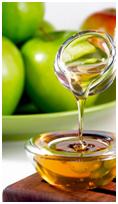Happy New Year!
 Wednesday night (September 12) at sundown we begin our celebration of Rosh Hashana, the Jewish New Year. The tradition says it will be 5,768 years since the creation of the world. Most of us don’t worry that the count is off by a few billion years. If the rabbis were better at math they probably would have become accountants instead.
Wednesday night (September 12) at sundown we begin our celebration of Rosh Hashana, the Jewish New Year. The tradition says it will be 5,768 years since the creation of the world. Most of us don’t worry that the count is off by a few billion years. If the rabbis were better at math they probably would have become accountants instead.
I hadn’t really thought it much until this year, but the holiday really does make some very conflicting emotional demands. One could be excused for not feeling sure just how one is supposed to feel Rosh Hashanah. On the one hand, Rosh Hashanah is called “Yom Hadin,” the Day of Judgment. The Talmud tells us there are three books open, the Book of Life, the Book of Death, and a third book for all of us who somewhere in between completely righteous and completely wicked. We spend the month of Elul, leading up to Rosh Hashana, in contemplation, evaluating our lives, reflecting on the year past, “pre-judging” ourselves for the judging to come. The air of strictness is reinforced by a teaching from the Midrash which asks “why don’t we say Hallel, the verses of praise, on Rosh Hashana and Yom Kippur?” The answer given is “how can Israel possibly sing when the king is sitting on his throne of judgment?” Similarly, we are told that while a Shabbat nap is a mitzvah, you are NOT supposed to take a nap on Rosh Hashana – it would be a sign of chutzpah, as if you weren’t worried about the judgment of the day. According to that logic, you are supposed to be so wound up over the judging going on you couldn’t possibly sleep.
But on the other hand, we don’t go around wearing sackcloth and ashes and fasting on Rosh Hashana; we wear white, we enjoy a sumptuous festive meal, we make a point of enjoying apples dipped in honey as a sign for sweet New Year, we are enjoined to eat new foods and wear new clothes. And we eat the apples dipped in honey on the first night of the holiday, before the judging has started. Isn’t that sort of chutzpadik? We call the day a “Yom Tov,” a holiday, literally a “good day.” In the Psalms, Rosh Hashana is called “yom chaganu,” our day of celebration.
So which is it we are supposed to feel? If it’s a day of judgment, why is it also such a happy occasion? Why the contradiction? Other holidays are more straightforward. Yom Kippur, with all its fasting and denial of physical pleasures feels more like a day of judgment. Other holidays are either happy ones, like Chanuka, Passover, etc., or sad ones like Tisha b’Av. Why the contradiction on Rosh Hashana?
It’s true that Rosh Hashana is the Day of Judgment, but the Slonimer Rebbe points out that it’s not JUST a day of judgment. More than that, I would say judgment is not the “essence” of the day. In our prayers on the holiday we will sing “hayom harat olam,” today the world was created. Rosh Hashana celebrates the birthday of the world, and the birthday symbolizes life and renewal. It’s a day when the judgement is accompanied by the sense of renewal – and for the Jewish people in particular we are renewing our commitment to God and Her Torah, and we know if we seriously renew that commitment, God will cut us some slack on our past transgressions. We are happy to renew the commitment, just as couple that has been married for fifty years joyfully renew their vows to each other. Every year we get to renew our vows to God, renew our commitment to be a part of the eternal covenant.
As you enjoy your festive meals on Rosh Hashana, take a moment to reflect on what it means to celebrate renewal, and what it means to you to renew the covenant, think about what you can do to keep up your part of the bargain with God, to be God’s partner in improving this planet that we all live on. Doing teshuva, repentance, for past sins is not enough – we need to think positively and reflect on how to make things better!
Shana tova u’metuka, a sweet and joyous New Year,
Rav Baruch
